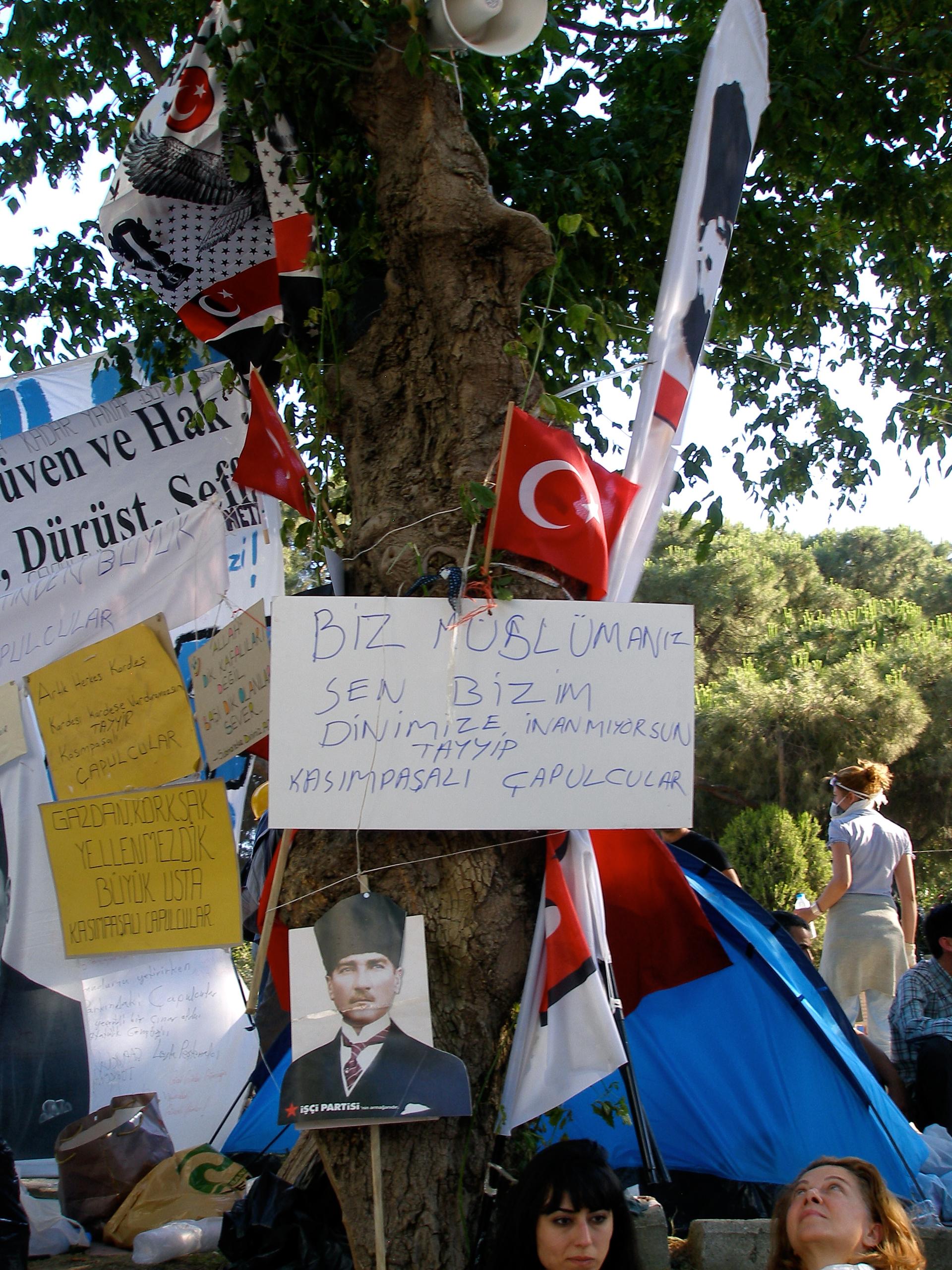Environmental concerns at core of Turkish protests
Protesters congregated in Istanbul’s Taksim Square. (Photo by Anna Beth Keim)
Prime Minister Recep Tayyip Erdogan’s plan to turn Gezi city park, one of the few patches of green in the heart of Istanbul, into a commercial development has provoked ongoing anti-government protests from the Turkish people, as well as a debate about the country’s identity.
The government’s plans for redeveloping the area included building a shopping mall on the park, which would mean destroying a few hundred Sycamore trees.
Choosing economic gains over environmental concerns is indicative of the direction Erdogan’s government has taken, says Sulmaan Khan, a freelance journalist based in Turkey.
The government has environmentally dubious projects in development in many arenas, Khan said, including coastal development in the Mediterranean, a massive increase in fishing, and a bridge project that will wipe out a large section of forest.
“For this government, development clearly does trump environmental concerns,” Khan said. “And that has been one of its keys to success.”
Erdogan has been relatively popular among the Turkish people, who have cheered the economic gains he has led. Those gains often appear as talking points in the prime minister’s addresses to the public.
“Recently when he was holding a rally in Istanbul, one of the themes he kept returning to was all the things he had done in terms of development,” Khan said. “‘We have built factories, we have built schools, we brought running water to houses.’ Which is fair to say he did.”
For some, the economic gains are not worth the environmental toll necessary for their completion.
Marine life, like swordfish, marine turtles and Monk seals, have disappeared because of industrial fishing, pollution and excessive noise, Khan said.
The government’s harsh response to the protests have worsened the situation and brought their committment to democracy into question. Police have used water cannons and tear gas on Turkish demonstrators. Dozens have been arrested and four have been killed.
Because Turkey is just beginning to develop, most Turkish people don’t place a high priority on environmental issues, Khan said. However, environmentally-conscious activists could be able to influence others that animals and forested areas are worth protecting.
Said Khan, “for the people who do care about the environment, no cost is too high to pay.”
